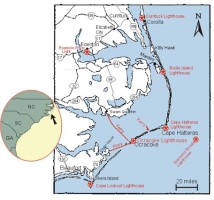
FAQ
How do heat pumps work and how long do they last?
Heat pumps move heat from one place to another. Because no energy is required to actually create the heat needed for your home, they can produce it three times more efficiently
than other heating systems. In winter, heat is extracted from the outdoor air, made hotter, and then distributed through the home. In summer, the process is reversed. Excess heat is removed from the
home and pushed outdoors. The life of a properly-maintained system can last about 15-20 years.
What should I look for in a new system?
The first and most important thing is to find a qualified contractor. Make sure your Contractor is fully licensed and insured. Ask for refrences to assure your that your
contractor can professionally install the right system for you. Next, pay attention to two efficiency ratings common to all electric heat pump systems: SEER (Seasonal Energy Efficiency Ratio), which
measures summer operating efficiency and HSPF (Heating Seasonal Performance Factor) which measures winter operating efficiency. SEER ratings begin at 13.o and HSPF ratings begin at 7.80. The
higher the ratings, the more efficient the equipment and the more energy dollars you'll save.
Why is auxilary heat coming on?
The colder it gets outside, the less heat is in the outdoor air. If the air is very cold, the heat pump may run at full capacity and still not be able to secure enough
warmth. That's when the backup heat source may come on to try to meet your thermostat setting. The backup heater also comes on when the heat pump is defrosting, which is a normal and automatic
function.
Why does my outdoor unit sometimes have ice build-up during the winter?
Under certain weather conditions the coil in or around the outdoor unit can develop ice build-up. Heat pump systems have an automatic defrost mode to melt this ice. You may notice
a smoke-like water vapor coming off the top of the outdoor unit. This is normal. If excess ice isn't defrosted within 90 minutes, switch your thermostat to the Emergency Heat setting (backup heat
source) and call your service company for advice.
What's a comfortable winter or summer setting on a heat pump thermostat?
Can I close off registers to rooms I don't use?
Electric heat pump systems rely on unrestricted airflow to provide total comfort for your home. If air movement is restricted, you will not only notice a difference in comfort, but
you can even damage your compressor. Don't close vents or registers in any area of the home, including in rooms that are not often used. Leave all doors open as well. Also, don't block registers and
return grills with furniture, draperies, etc.
Sometimes I notice the outdoor unit runs almost constantly. Is this normal?
For our climate, it's normal for the outdoor unit to run more frequently in temperatures below about 30 in winter or above 90 in summer (or in times of high humidity).
If the outdoor unit runs a lot a lot during normal winter temperatures of 30-50, possible reasons include: Thermostat set too high Thermostat needs adjustment or replacement Low
refrigerant level Thermostat exposed to cold drafts Outside unit blocked by snow, ice, etc.
If the outdoor unit runs a lot during normal summer temperatures (less than 90 and normal humidity levels), possible reasons include:
Low refrigerant level Very warm weather (over 90F) Dirty filters or too many registers closed, limiting air movement Improperly designed ductwork Heat pump system is undersized;
its capacity is not enough to meet the home's cooling needs
What are geothermal heat pumps and are they more efficient than regular air-source systems?
Geothermal heat pump systems use the ground's constant temperature to heat and cool a home. In our climate, the ground four feet below the surface is between 58 and 62 year-round,
perfect for a geothermal heat pump system to deliver heating or cooling needs regardless of outdoor temperatures. Therefore, you can expect higher HSPF efficiency ratings (Heating Seasonal
Performance Factor) from geothermal systems than most air-source systems.
What are some ways to help control my heating and cooling costs?
Here are some of the most important tips: In winter, find a comfortable thermostat setting and leave it there. Clean or replace filters every month. Air flow around the outdoor
unit is crucial to peak operating performance and efficiency; clear away any obstructions from around the outdoor unit, such as snow, weeds, leaves, etc. Have a Currituck Mechanical perform annual
maintenance check-ups on your system to be sure it's operating at peak efficiency
Why does the air coming out of my supply registers feel cooler in the heating mode than other types of systems?
The temperature of supply air depends on how fast the air is moved through the duct system. The air movement is controlled by a fan speed setting on the heat pump unit and can be
adjusted. If you experience uneven temperatures throughout your home, it's probably not a heat pump problem at all. More likely it's due to improper sizing and/or installation of your duct system. To
be sure, have your Service company check the fan speed and duct system during your next maintenance checkup



